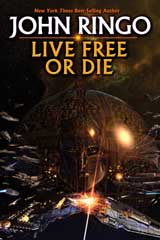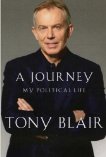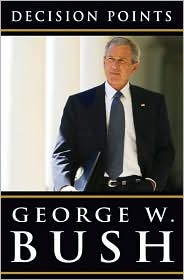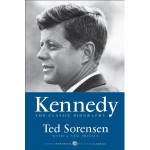 Kennedy by Theodore Sorenson
Kennedy by Theodore Sorenson
My rating: 2 of 5 stars
How suddenly a life can be cut short. That is the lesson I took away from "Kennedy".
I underestimated Ted Sorenson. I shouldn't have. One doesn't get to be Counselor to the President and speech writer without having some skills with words. Nevertheless I strongly disliked this book and allowed that to color my perception of Sorenson's skills. I did, at least, up until the final paragraph.
The final few chapters start to build momentum as Sorenson depicts Kennedy's resolution of the Cuban Missile Crisis, the sudden relaxation of tension with the Soviet Union, the negotiations over atmospheric nuclear testing, and the successful signing of the Nuclear Test Ban Treaty. The tone of the book changes to reflect Kennedy's relief at successfully navigating these crises. Sorenson chronicles Kennedy's trip out west to promote the treaty and the dawning new era of détente with the Soviet Union.
Then, he treats the reader to this final, concluding paragraph.
On November 20 he transmitted an optimistic report to the Congress on our participation in the United Nations. On November 21 he started another tour into the heartland of the opposition, this time in Texas. That evening, in Houston, he talked of "an America that is both powerful and peaceful, with a people that are both prosperous and just." The next morning, in Fort Worth, he expressed confidence that "because we are stronger...our chances for security, our chances for peace, are better than they have been in the past." That afternoon, in Dallas, he was shot dead.
The introduction of Kennedy's assassination is sudden, abrupt, and shocking. This is the first mention of Kennedy's death in the entire book. It's effective. It's very effective. I'm not sure I even like Kennedy that much but, for the first time, I felt the emotional impact of his assassination. It was an unpleasant dash of cold water and I felt the shocking finality of a life suddenly snipped short. A life ended without a chance to say goodbye, without the opportunity for a final hug or smile, without training a successor, or squeezing the hand of a loved one. A life that suddenly, irrevocably, ends.
For that, I'll forgive Sorenson for much of the pain I felt while reading his biography of John F. Kennedy.
Unfortunately, it can't make up for all of the book's shortcomings. Like I said before, I really didn't like this biography that much. I read it expecting to get an introduction to Kennedy, his life, his time, his achievements, and his death. What I got was a hagiographic love letter from a devoted worshipper. Perhaps you feel I'm being too harsh. Allow me, please, to illustrate.
It will not be easy for historians to compare John Kennedy with his predecessors and successors, for he was unique in his imprint upon the office: the first to be elected at so young an age, the first from the Catholic faith, the first to take office in an age of mutual nuclear capabilities, the first to reach literally for the moon and beyond, the first to prevent a new recession or inflation in modern peacetime, the first to pronounce that all racial segregation and discrimination must be abolished as a matter of right, the first to meet our adversaries in a potentially nuclear confrontation, the first to take a solid step toward nuclear arms control—and the first to die at so young an age.
And, again.
History and posterity must decide. Customarily they reserve the mantle of greatness for those who win great wars, not those who prevent them. But in my unobjective view I think it will be difficult to measure John Kennedy by any ordinary historical yardstick. For he was an extraordinary man, an extraordinary politician and an extraordinary President. Just as no chart on the history of weapons could accurately reflect the advent of the atom, so it is my belief that no scale of good and bad Presidents can rate John Fitzgerald Kennedy. A mind so free of fear and myth and prejudice, so opposed to cant and clichés, so unwilling to feign or be fooled, to accept or reflect mediocrity, is rare in our world—and even rarer in American politics. Without demeaning any of the great men who have held the Presidency in this century, I do not see how John Kennedy could be ranked below any one of them.
Much of the book is written in that vein. It grew wearisome after the first 3 chapters. It was dreadfully dull by the end of the book. In Sorenson's estimation, Kennedy could do no wrong. It wasn't enough that he was a superb President. Sorenson was convinced that Kennedy could have been his own best Secretary of State, his own best Ambassador, his own best Press Secretary, his own best speech writer, his own best Chief of Staff, etc. The only thing holding Kennedy back from single handedly running the government the way it deserved to be run was a simple lack of time.
Thankfully, the book was not without its redeeming points. The language was, occasionally, poetic. For example:
But the President was upset, and sternly told Jacqueline later never to do that ... and not to worry about his future. On November 22 his future merged with his past, and we will never know what might have been. His own inner drive, as well as the swift pace of our times, had enabled him to do more in the White House in three years than many had done in eight—to live a fuller life in forty-six years than most men do in eighty. But that only makes all the greater our loss of the years he was denied.
And I did finish the book with a better understanding of the Cuban Missile Crisis, the Berlin crisis, the Bay of Pigs, and other significant events than when I started. So my time spent reading it wasn't an entire waste. But it was a trudge, not a pleasure.
If you're looking for a serious introduction to President John F. Kennedy, I'd advise you to look elsewhere. If you already love President John F. Kennedy and simple want to relive the love, this is most definitely the book for you.
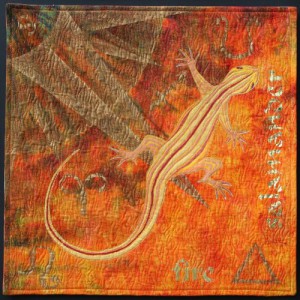 Salamander by David D. Friedman
Salamander by David D. Friedman
